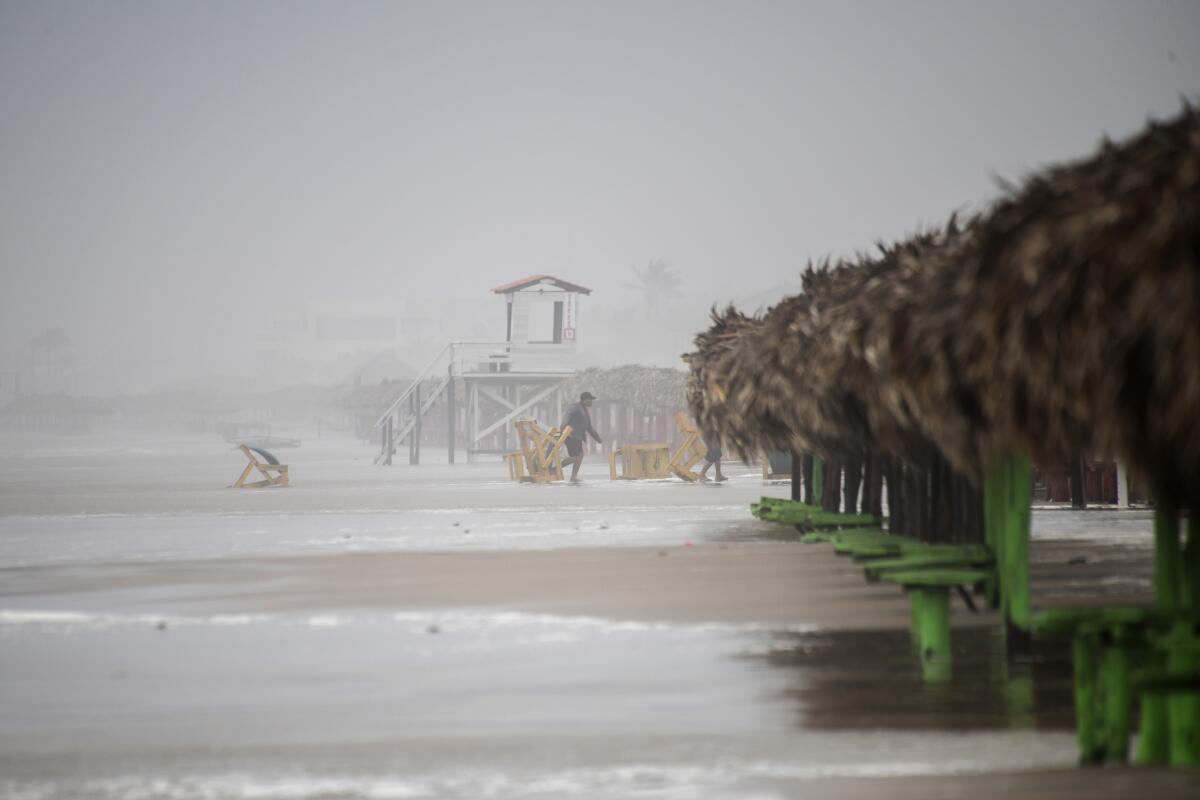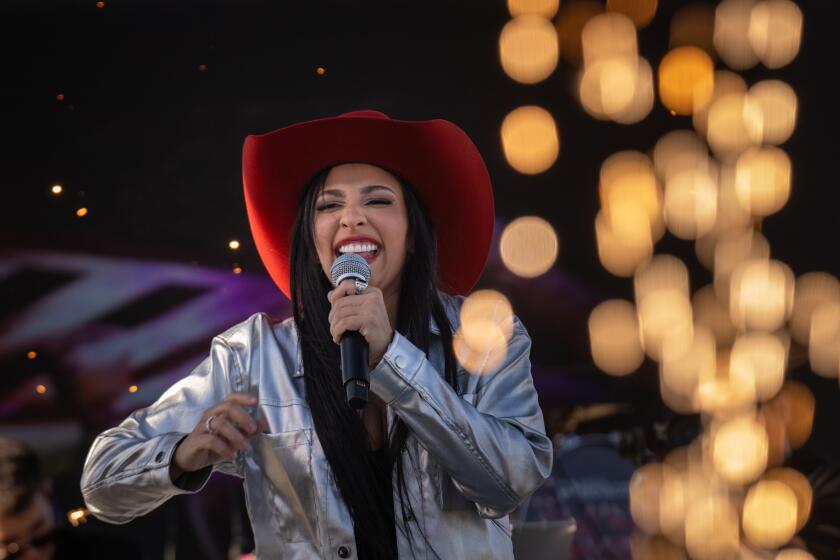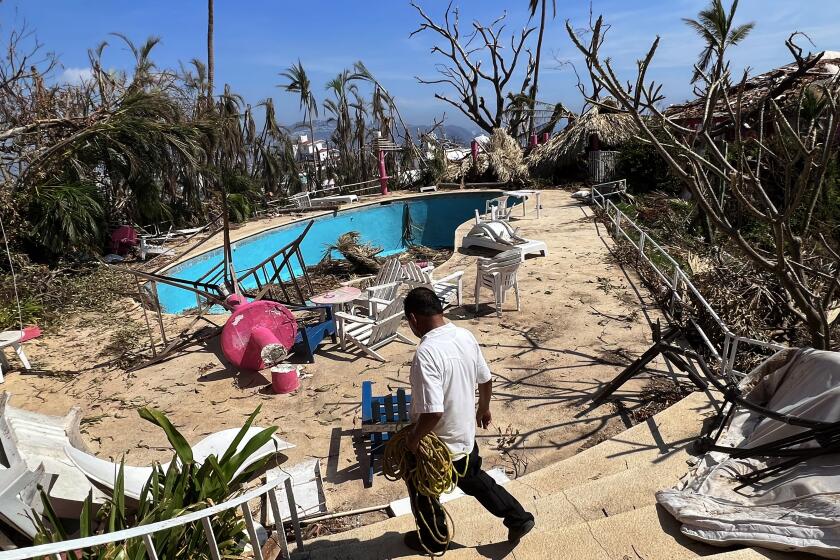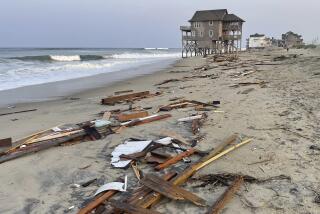Alberto today, Beryl tomorrow. How do hurricanes and big storms get their names?

- Share via
Mexico City — Meteorologists dubbed it “Alberto,” the first named storm of the 2024 Atlantic and Gulf of Mexico hurricane season.
Alberto made landfall as a tropical storm Thursday near the Mexican port of Tampico, causing floods and at least four deaths.
Why was it called “Alberto”?
That happened to be first on an alphabetical list of names for prospective 2024 storms compiled by an international committee of the United Nations’ World Meteorological Organization. Name-givers adhere to a policy of diversity of gender and language — while seeking easy-to-pronounce monikers to identify storms. Alberto was first this year; in 2025, Andrea is atop the list.
Following Alberto, the next in line for 2024 are:
- Beryl
- Chris
- Debby
- Ernesto
- Francine
- Gordon
- Helene
- Isaac
- Joyce
- Kirk
- Leslie
- Milton
- Nadine
- Oscar
- Patty
- Rafael
- Sara
- Tony
- Valerie
- William
The naming of storms goes back centuries, but experts say it was long a haphazard process — tempests were usually named only after causing disasters.
In the 19th century, if a damaging storm struck on a Catholic saint’s day, it would get the saint’s name, the National Hurricane Center notes in a brief history. For instance, an 1825 hurricane that devastated Puerto Rico was named Santa Ana because it hit on July 26, the feast day of St. Anne.
She’s ‘El Chapo’ Guzman’s lawyer, using her bond with Mexico’s most notorious cartel kingpin to launch a singing career. Onstage, she’s La Abogada.
“As weather forecasting developed into a science, storms were identified by their latitude-longitude,” the World Meteorological Organization says in a fact sheet. “However, using short, distinctive names — in written and spoken communications — proved quicker and less subject to error.”
The practice of naming hurricanes after women goes back to at least the late 19th century, according to the National Hurricane Center. The custom was common among U.S. Army and Navy meteorologists who watched storms over the Pacific during World War II. Male names for hurricanes were introduced in 1979, alternating with traditionally female names in the case of Atlantic and gulf storms. The names, a mix of English, French and Spanish monikers, have no link to any individuals, officials stress.
Losses are estimated at $15 billion in Acapulco, the storied Mexican beach town that had fallen on harder times even before Hurricane Otis struck.
The objective is to avoid confusion and be able to identify storms accurately, said Susan Buchanan, spokesperson for the National Weather Service.
“The goal of naming hurricanes is to help people communicate, understand and remember them,” Buchanan said in an email. “Names must be short in character length for ease of communication, easy to pronounce, have appropriate significance in different languages, and be unique to the region.”
Atlantic and gulf hurricane names are selected in a six-year rotation that repeats every seventh year, so Alberto may return in 2030. Lists of approved names for the Atlantic are already set through 2029, as experts warn that climate change could bring more storms — potentially of more calamitous magnitudes.
Ukrainians displaced by war find new purpose in Shakespeare’s play of love, loss and madness, bringing their blood-red version to the bard’s hometown.
With near-record-high ocean temperatures in the Atlantic, forecasters at the National Oceanic and Atmospheric Administration are predicting a worse-than-usual 2024 hurricane season, which runs from June 1 to Nov. 30. Experts expect 17 to 25 named storms — those with winds of 39 mph or higher. They forecast that eight to 13 will become hurricanes, with winds of 74 mph or greater, and that four to seven of those will reach Category 3 to 5, with winds of 111 mph or higher.
Some hurricanes have been so deadly or destructive that their infamous names will never return. Andrew (1992), Katrina (2005), Sandy (2012) are among the many formally “retired.”
And don’t expect to have a storm bearing your name if it begins in Q, U, X, Y or Z. Just not enough snappy names beginning with those letters, the prognosticators say. Sorry, Quentin and Zara.
More to Read
Sign up for Essential California
The most important California stories and recommendations in your inbox every morning.
You may occasionally receive promotional content from the Los Angeles Times.













